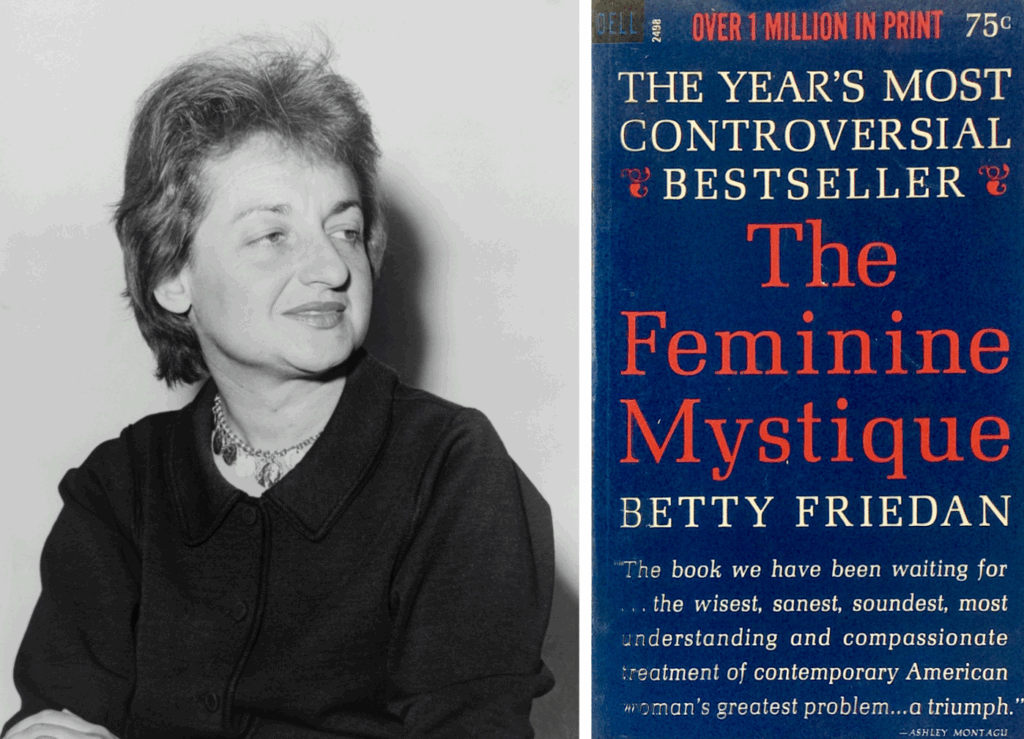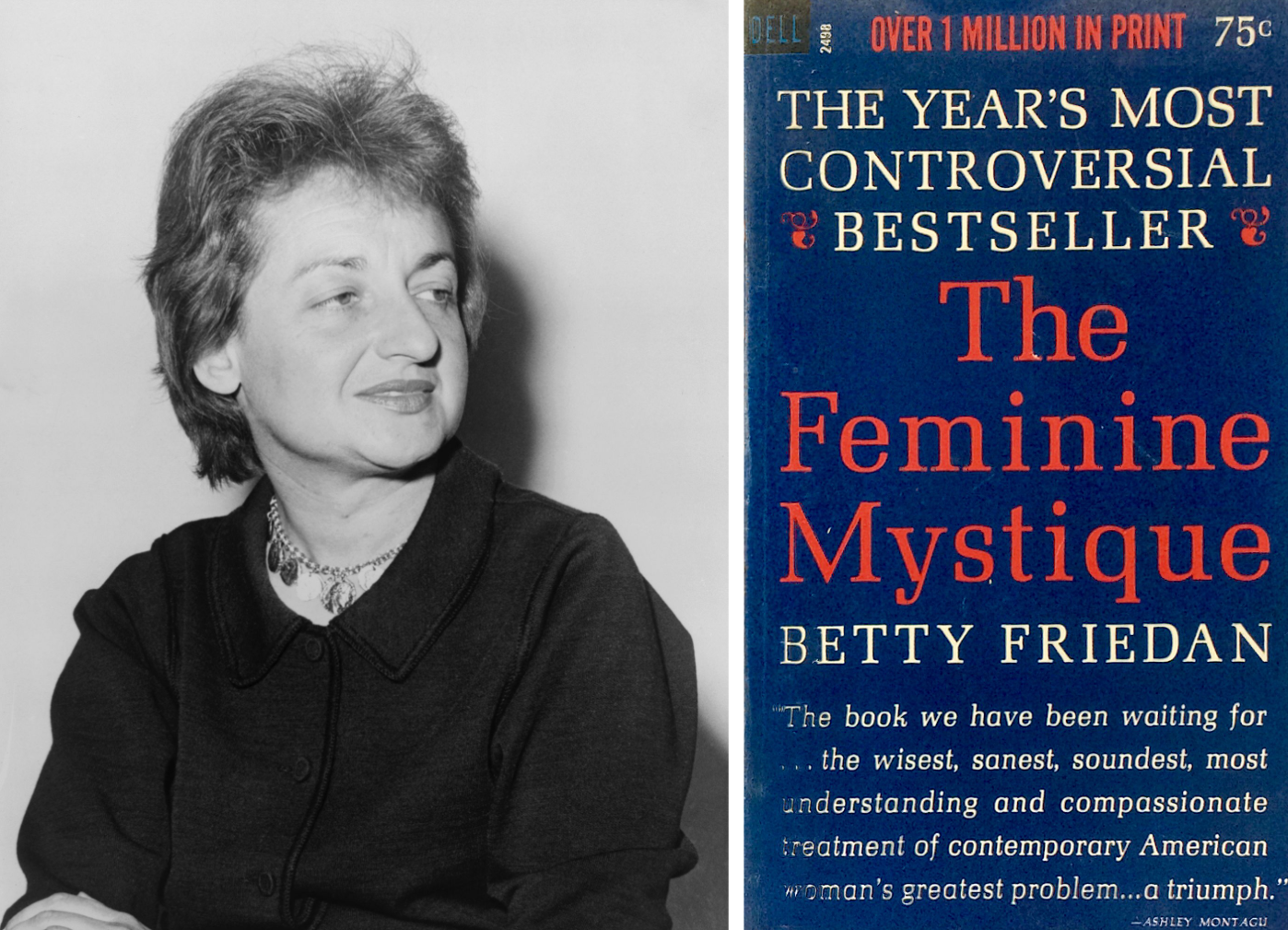
Unmasking Expectations: Powerful Quotes from The Feminine Mystique That Still Resonate Today
Betty Friedan’s 1963 groundbreaking book, *The Feminine Mystique*, didn’t just challenge the status quo; it ignited a revolution. It exposed the ‘problem that has no name,’ the pervasive dissatisfaction and lack of fulfillment experienced by countless women confined to the domestic sphere in post-World War II America. Decades later, the book’s influence persists, and its most potent quotes continue to spark conversations about gender roles, societal expectations, and the ongoing struggle for equality. This article delves into some of the most impactful quotes from *The Feminine Mystique*, exploring their historical context and their continued relevance in the 21st century. The power of these quotes lies not just in their words, but in the way they articulated a widespread, yet unspoken, discontent.
The core of *The Feminine Mystique* lies in Friedan’s dissection of the societal pressures that limited women’s aspirations. The book directly challenged the prevailing narrative, which depicted women’s fulfillment as solely dependent on their roles as wives, mothers, and homemakers. This expectation, Friedan argued, was a carefully constructed ‘mystique’ – a deceptive ideal that masked the reality of women’s stifled potential and the emptiness they often experienced within the confines of their prescribed roles. The book’s impact was immediate and profound, prompting a national dialogue about women’s roles in society and paving the way for the second-wave feminist movement. Key quotes from *The Feminine Mystique* encapsulate this central theme, offering a powerful critique of the status quo.
The ‘Problem That Has No Name’
One of the most iconic phrases from *The Feminine Mystique* is, of course, the description of the ‘problem that has no name.’ Friedan identified this nameless discontent as the central issue affecting women’s lives. She observed that many women felt a deep sense of dissatisfaction, a feeling that something was missing, despite having seemingly ‘ideal’ lives as wives and mothers. This quote became a rallying cry for women who felt trapped and unfulfilled. The very act of naming this feeling gave women a shared language and a sense of solidarity. The ‘problem that has no name’ was the essence of the feminine mystique, a societal construct that kept women from realizing their full potential.
“The problem lay buried, unspoken, for many years in the minds of American women. It was a strange stirring, a sense of dissatisfaction, a yearning that women suffered in the middle of the twentieth century in the United States. Each suburban wife struggled with it alone. As she made the beds, shopped for groceries, matched slipcover material, ate peanut butter sandwiches with her children, chauffeured Cub Scouts and Brownies, lay beside her husband at night—she was afraid to ask even of herself the silent question—’Is this all?’”
This quote encapsulates the loneliness and isolation experienced by many women. It highlights the unspoken nature of their discontent, the fear of admitting that their lives, as defined by society, were not enough. It was this very silence that *The Feminine Mystique* sought to break, giving voice to a generation of women who felt trapped by the feminine mystique.
Challenging the Ideal of Domesticity
Friedan’s work directly challenged the prevailing societal ideal that equated a woman’s worth with her domestic abilities. She argued that this focus on the home and family, while important, limited women’s opportunities for intellectual and personal growth. The book exposed the ways in which women were subtly discouraged from pursuing education, careers, or any activities outside of the domestic sphere. The feminine mystique, according to Friedan, promoted a narrow definition of femininity that ultimately served to suppress women’s aspirations.
“We can no longer ignore that voice within women that says: ‘I want something more than my husband, my children, and my home.’”
This quote reflects the core of Friedan’s argument. It suggests that women’s needs and desires extended beyond the traditional roles assigned to them. It was a call for women to recognize and embrace their own ambitions and to seek fulfillment outside of the home. The book was a catalyst for change, empowering women to question the limitations imposed upon them by the feminine mystique.
The Pressure to Conform
Friedan also highlighted the pressure on women to conform to the feminine mystique. The media, advertising, and popular culture all played a role in reinforcing the ideal of the happy homemaker, creating an environment where women who deviated from this norm felt like failures. This pressure to conform led to feelings of inadequacy and a sense of being trapped. This pressure, Friedan argued, was a form of social control, keeping women in their place and preventing them from challenging the status quo.
“The feminine mystique has succeeded in burying millions of American women alive.”
This quote is particularly powerful in its starkness. It underscores the suffocating nature of the feminine mystique and the ways in which it limited women’s lives. It highlights the emotional and psychological toll of conforming to societal expectations, and the sense of being trapped and unfulfilled that many women experienced. The quote’s impact was a wake-up call, a recognition of the widespread discontent caused by the feminine mystique.
The Importance of Education and Opportunity
*The Feminine Mystique* emphasized the importance of education and opportunities for women. Friedan argued that women needed access to higher education and the ability to pursue careers to achieve true equality. She saw education as a key to unlocking women’s potential and empowering them to challenge the limitations imposed by the feminine mystique. The book advocated for women to have the same opportunities as men, including the right to pursue their intellectual and professional ambitions.
“A woman has got to be able to say, and not feel guilty, ‘Who am I, and what do I want?’”
This quote is a call for self-discovery and autonomy. It encourages women to define themselves and their goals, rather than allowing society to dictate their lives. It reflects Friedan’s belief that women should have the freedom to choose their own paths and to pursue their own interests. It underscores the importance of self-awareness and the courage to challenge the feminine mystique.
The Legacy of *The Feminine Mystique*
The impact of *The Feminine Mystique* is undeniable. It sparked a national conversation about gender roles, women’s rights, and the pursuit of fulfillment. It helped to launch the second-wave feminist movement and inspired generations of women to challenge societal expectations and fight for equality. While significant progress has been made, the issues raised by Friedan continue to resonate today. The struggle for equal pay, access to childcare, and the dismantling of gender stereotypes remains ongoing. The quotes from *The Feminine Mystique* serve as a reminder of the challenges that women have faced and the progress that still needs to be made. The feminine mystique, in many ways, continues to evolve, taking on new forms and presenting new challenges. The book’s message, however, remains as relevant as ever.
The enduring power of *The Feminine Mystique* lies in its ability to articulate the unspoken discontent of women and to challenge the societal norms that limited their potential. The quotes, extracted from this seminal work, provide a powerful lens through which to understand the historical context of the women’s rights movement and the ongoing struggle for gender equality. They serve as a source of inspiration and a call to action, reminding us that the fight for a more just and equitable society is far from over. The book, and its key quotes, continue to empower individuals to question the feminine mystique and to strive for a world where all women can achieve their full potential.
The relevance of the quotes from *The Feminine Mystique* is amplified by the continued discussion of the topics they address. The struggles for equal pay, reproductive rights, and representation in leadership positions are all directly relevant to the core themes of Friedan’s work. The book’s analysis of the pressures placed upon women to conform to societal expectations remains a powerful tool for understanding the challenges women face in the 21st century. By revisiting these quotes and understanding their historical context, we can gain a deeper appreciation for the progress that has been made and the work that still needs to be done to dismantle the feminine mystique and achieve true gender equality. The impact of the feminine mystique is still visible, but through continued dialogue and action, we can continue to break down its barriers.
[See also: Related Article Titles]


